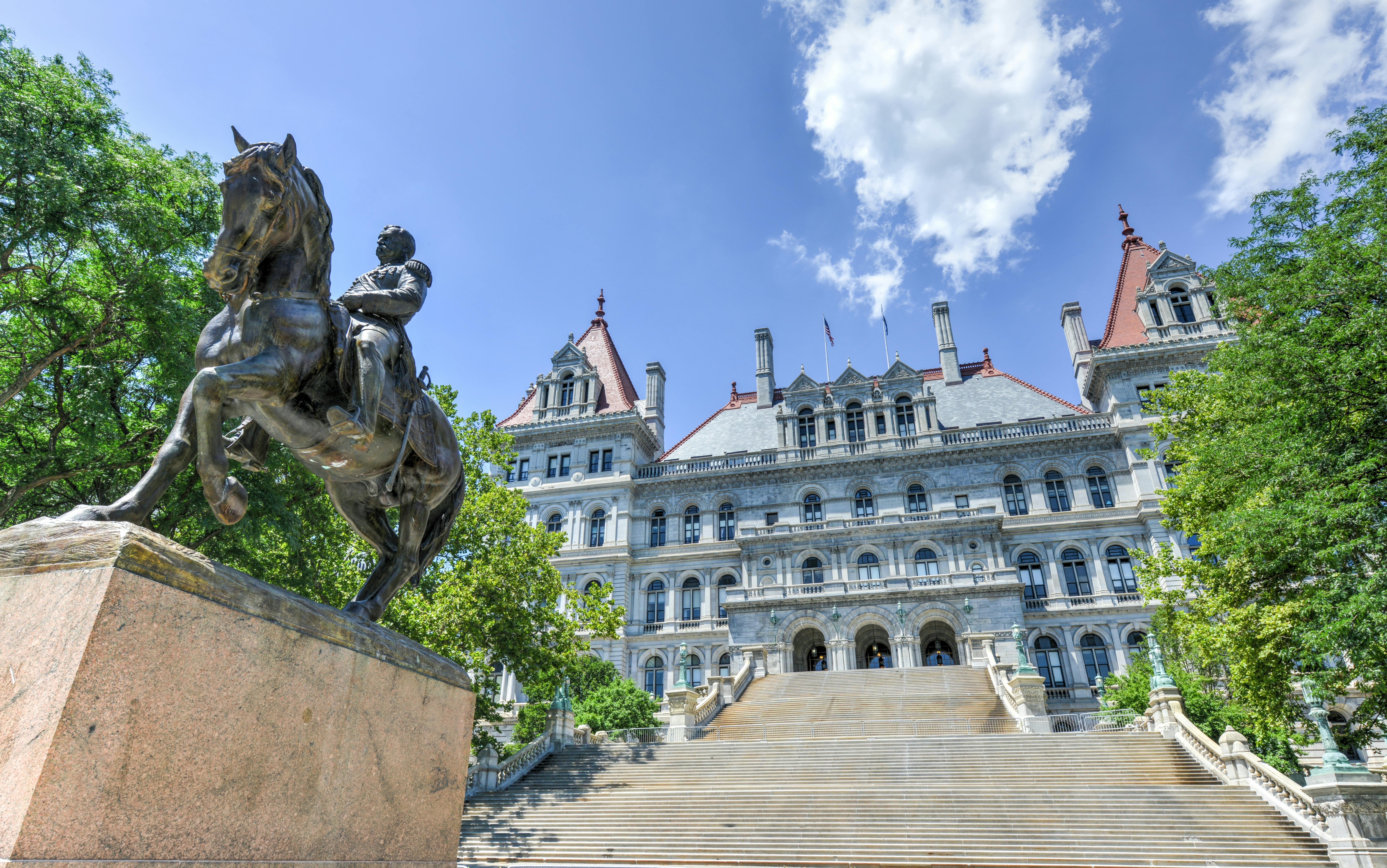
Public Affairs Campaigns for New York’s Session Leftovers Begin Now
By Freeman KlopottWhen New York’s legislative session ends, there’s always leftover issues, and this year is no different, particularly with the sudden incursion of congestion pricing policy in the waning days of session. All too often, organizations wait until January to get their campaigns off the ground, but that’s too late – by then there’s already a stew of interests competing for attention.
Work on the Governor Kathy Hochul’s next budget proposal is already ramping up and so, too, should public affairs campaigns to get your issue included, and garner all the traction that comes with it.
The 2024 session leftovers break down across a few categories, including:
Environment/Sustainability
- The New York Heat Act: The New York Senate approved this bill, which would speed New York’s transition away from natural gas, but it didn’t make it out of the Assembly. The bill has wide-reaching support from environmental groups and is poised for a big push this year to get it over the finish line to align New York’s laws for utilities with the goals of the state’s Climate Leadership and Community Protection Act.
- Enhanced Producer Responsibility: Also known as the “Cheese Bill,” this annual fight over requiring those who generate packaging waste to pay for the cost of recycling it hit new heights last session as activists backed legislation that opponents defined as a reach to ban common products like single-slice cheese and cool whip all while raising prices on strapped consumers. Last fall this legislation had a hearing that raised early attention around it that never went away as both sides battled it out to the very end of session and we can expect similar energy around it this upcoming cycle as activists press again.
Social Safety Net
- Temporary Disability Benefits: “We were close,” Senator Jessica Ramos and Assembly Woman Michaelle C. Solages wrote in a joint op-ed of their effort to raise short-term medical benefits for the first time since 1989. After the governor proposed similar legislation in her budget, it seemed all but certain the effort to align the program’s benefits with those offered through Paid Family Leave would increase from the their current cap of $170 a week. However, it didn’t get done in the budget, and “in the chaos of the final hours of a hectic legislative session, time simply ran out,” in June, they wrote. “We refuse to give up.”
- Prescription Drug Importation: AARP and over 30 community-based organizations across the state fought hard to pass a bill last session that would allow for the importation of prescription drugs to lower costs for New Yorkers. The bill was approved by the Senate, but not the Assembly, and is poised for another robust push in the coming session.
New York State Budget
- Medicaid: The health insurance program for low-income earners is the fastest growing piece of the state budget, with spending projected to be 40% higher by the end of FY 2025 from FY 2022, and the Governor is already taking heat for her efforts to rein in the costs by implementing efficiency measures in the high-spending Consumer Directed Personal Assistance Program, which currently provides home health care services for elderly and disabled New Yorkers with the help of about 700 different companies. The Governor’s plan calls for having the program serviced by one company, though she may be open to some changes. Either way, with a $4 billion budget gap already on the horizon, slowing the growth of health care spending will be a priority and with billions of dollars at stake, the public affairs fight will be big.
- School aid: In her last budget, Governor Hochul called for ending the state’s long held policy that school districts never receive less Foundation Aid from one year to the next. The shift would have enabled the state to account for student enrollment declines when it calculates annual school aid payments. New York spends more per pupil than any other state and doesn’t get the best results in return, raising perennial questions about how funds are distributed. They’re sure to be back again this year amid that $4 billion budget gap.
- Congestion Pricing: Governor Hochul’s decision to delay congestion pricing ripped a $15 billion hole in the MTA’s capital plan, but it could easily become a non-issue if the governor advances it after the November election. However, without it, the Governor and legislature will have to find a way to replace the revenue and keep the MTA’s updates and growth plans on track.
Without a doubt, I haven’t hit every leftover issue --- this is just a taste from different sections of the legislative fridge. The point is, there’s no time to waste in building a winning public affairs campaign to devour these leftovers before they get old and moldy. Marino is here to help you win.
Not sure what a public affairs campaign is or why you need one? Read up on why you need public affairs to enact your policy priorities here.